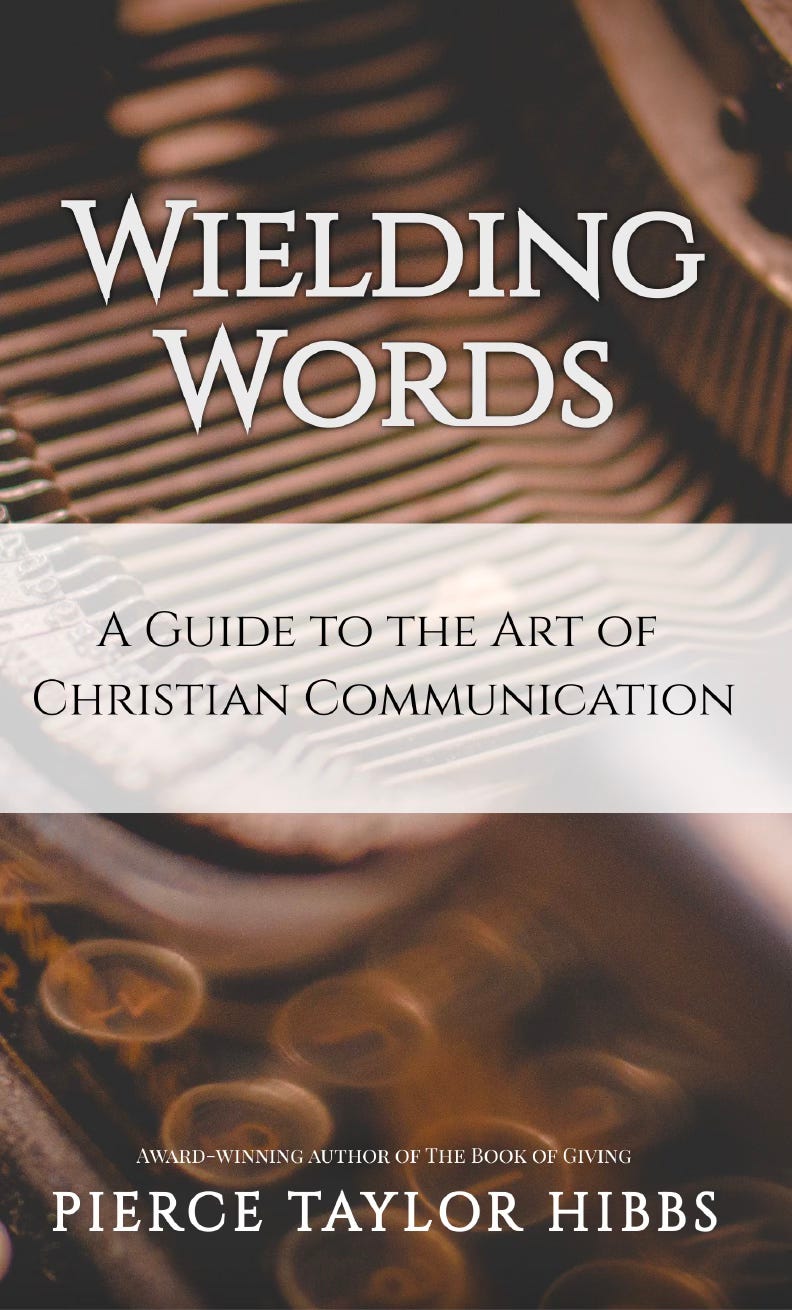You Are a Seed
Small, but full of God-given potential: that's you. Plus a new book for Christian writers.
Every single word of the Bible is about Jesus Christ. He is the Word behind all words. And so when we start reading in Genesis, we should be scanning the horizons of the text for his daylight. It’s always peeking through. Take the third day of creation, for instance.
And God said, “Let the earth sprout vegetation, plants yielding seed, and fruit trees bearing fruit in which is their seed, each according to its kind, on the earth.” And it was so. The earth brought forth vegetation, plants yielding seed according to their own kinds, and trees bearing fruit in which is their seed, each according to its kind. And God saw that it was good. And there was evening and there was morning, the third day. (Gen. 1:11-13 ESV)
God didn’t just make plants and fruit trees. He made the seeds inside them: tiny, grain-like capsules of coming life and power. There is so much more here than we see—just as seeds themselves are much more than we give them credit for.
These seeds would be the source of life and flourishing for Adam and Eve. Without seeds, there’s no new growth. Without new growth, there’s no new crop. Without a new crop, there’s no food. Without food . . . well, you get the point. These seeds were vital to the present and future life of the first humans.
People Seeds
And yet, seeds weren’t just part of the vegetation. Seeds weren’t just things. People were called seeds, too. In fact, this is one of the oldest metaphors for human lineage in the Bible. It is the seed (Hebrew, zar·‘āh; Greek, spermatos) of the woman—sometimes translated “offspring”—who would crush the head of the serpent (Gen. 3:15).
Then God made promises to the seed of Noah after the flood (Gen. 9:9), to the seed of Abraham (Gen. 12:7; 13:15; 22:17-18), to the seed of Isaac (26:24), and to the seed of Jacob (Gen. 35:12).
A seed would save the world—not a full-fledged tree or a garden, but a seed.
The coming Messiah would be the seed of Jesse (Isa. 11:10) and David (Ps. 89:3-4; John 7:42). A seed would save the world—not a full-fledged tree or a garden, but a seed. One seed.
The Seed of Christ Planted
That seed, the seed of Christ, is planted in the heart of every Christian. In talking about the acceptance of Jesus Christ, the seed of David, Paul wrote, “I planted, Apollos watered, but God gave the growth. So neither he who plants nor he who waters is anything, but only God who gives the growth” (1 Cor. 3:6-7).
The seed of Christ is in you—the seed of salvation, the seed of hope, the seed of a thousand stars.
The Bible starts with the seeds of plants, sown in the soil; it culminates with the seed of God’s Son, sown in souls.
The Bible starts with the seeds of plants, sown in the soil; it culminates with the seed of God’s Son, sown in souls. And yet it keeps going, doesn’t it?
You Are a Seed
If Christ is the seed, received and growing in believers, then it’s also true that you, who bear “the image of the man of heaven” (1 Cor. 15:49), are also a seed. And don’t dismiss this as a metaphor. Metaphors are real. They carry divine meaning because of the metaphor-making God, the Word of words (John 1:1).
God has chosen to work through seeds, to go through the smallest to change the greatest.
You really are a seed. And that’s encouraging . . . because I often feel small, brittle, subject to the elements of circumstance and emotion. And yet God is the Gardener, the planter, the caretaker of the soul’s soil. He “gives the growth.” And it doesn’t matter how small or brittle you feel. God has chosen to work through seeds, to go through the smallest to change the greatest.
Wherever you are today, you are being tended. You’re not on your own. And whatever good you do today is ultimately the work of a heart-Gardener.
Isn’t it beautiful how the Bible begins with seeds and is already planting—there in Genesis 1—the person who will germinate inside us?
Here’s to a day of happy growth at the hands of God—come rain or shine.
News: A New Guide for Christian Writers
Not everyone knows this, but I spent over a decade teaching writing to graduate students, and I’m a passionate practitioner of the craft as well. Today, I’ve published a book that puts together a lot of what I’ve learned about what writing is, why we do it, how to do it well, and how it relates to our character formation. Here’s a sample of the first two chapters.





